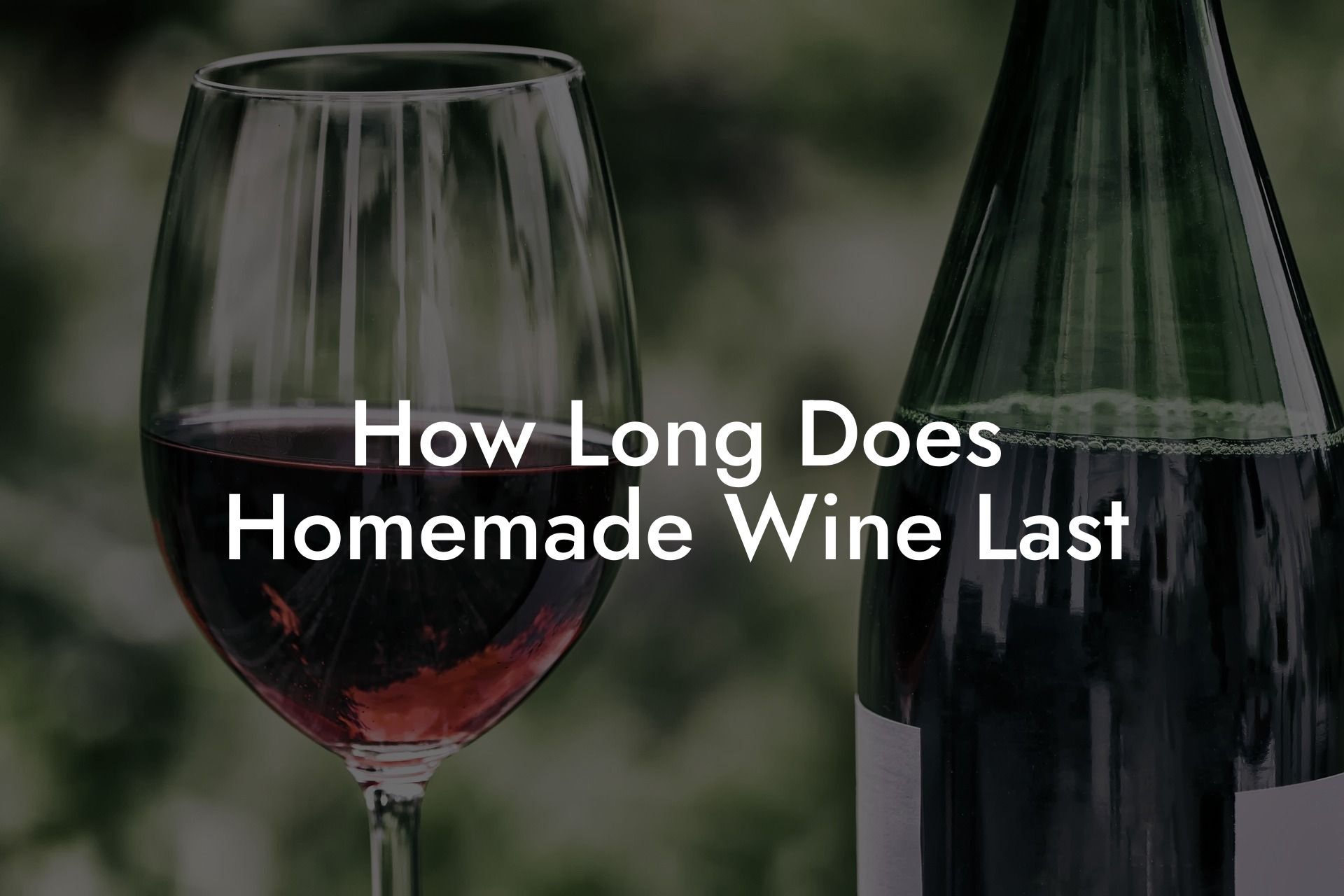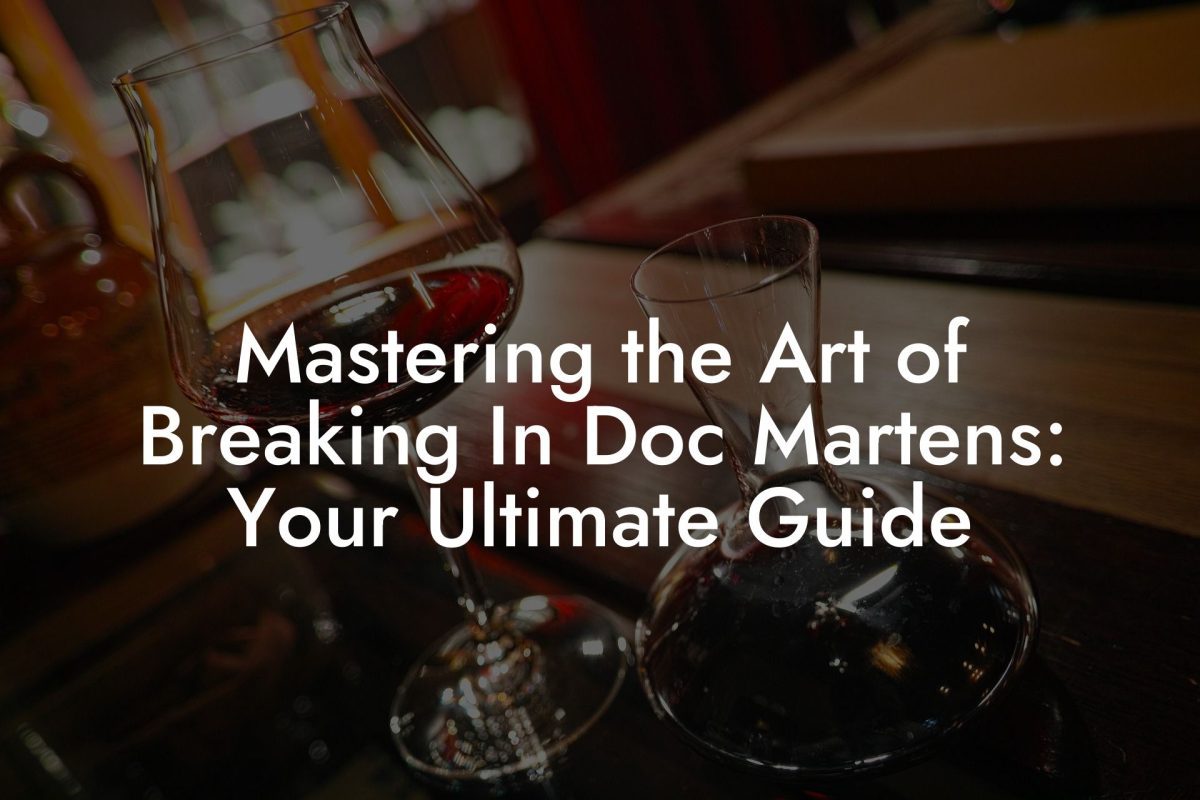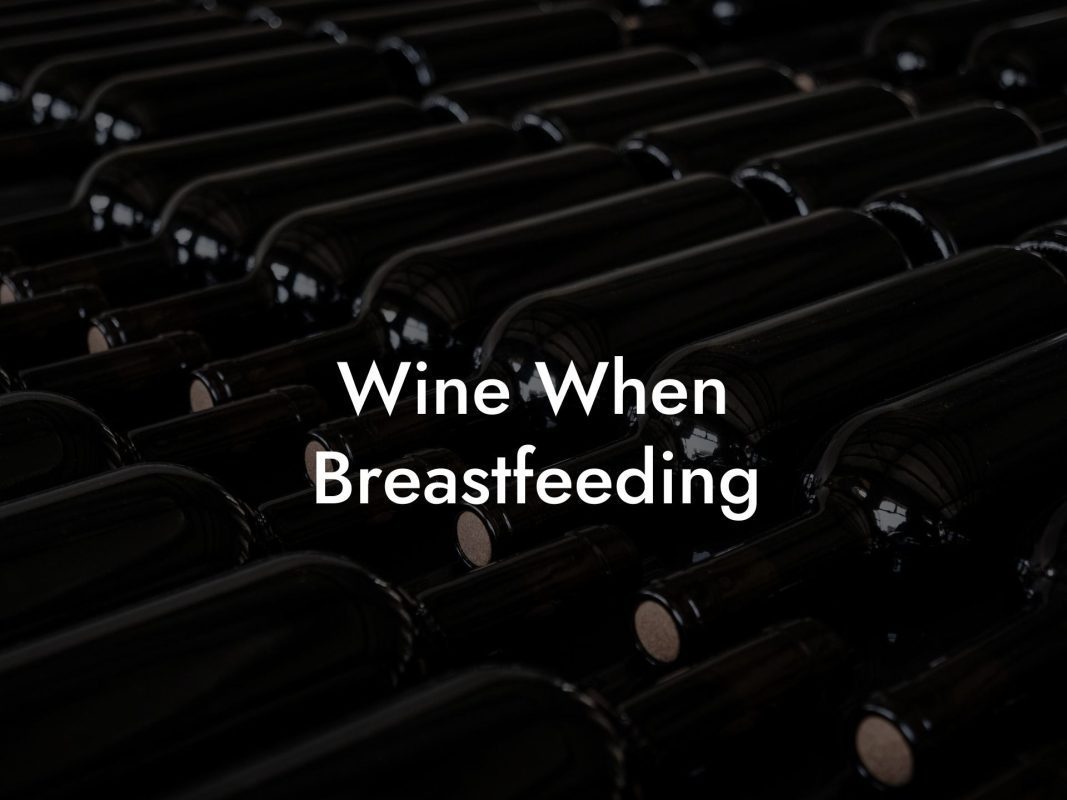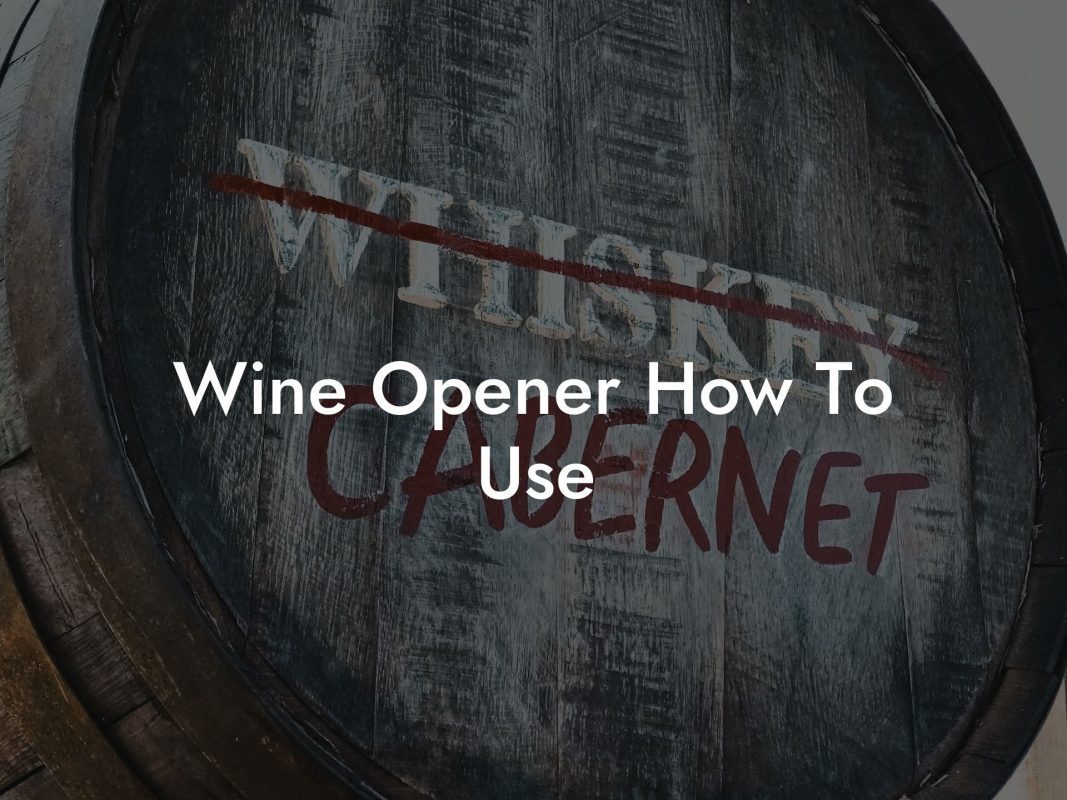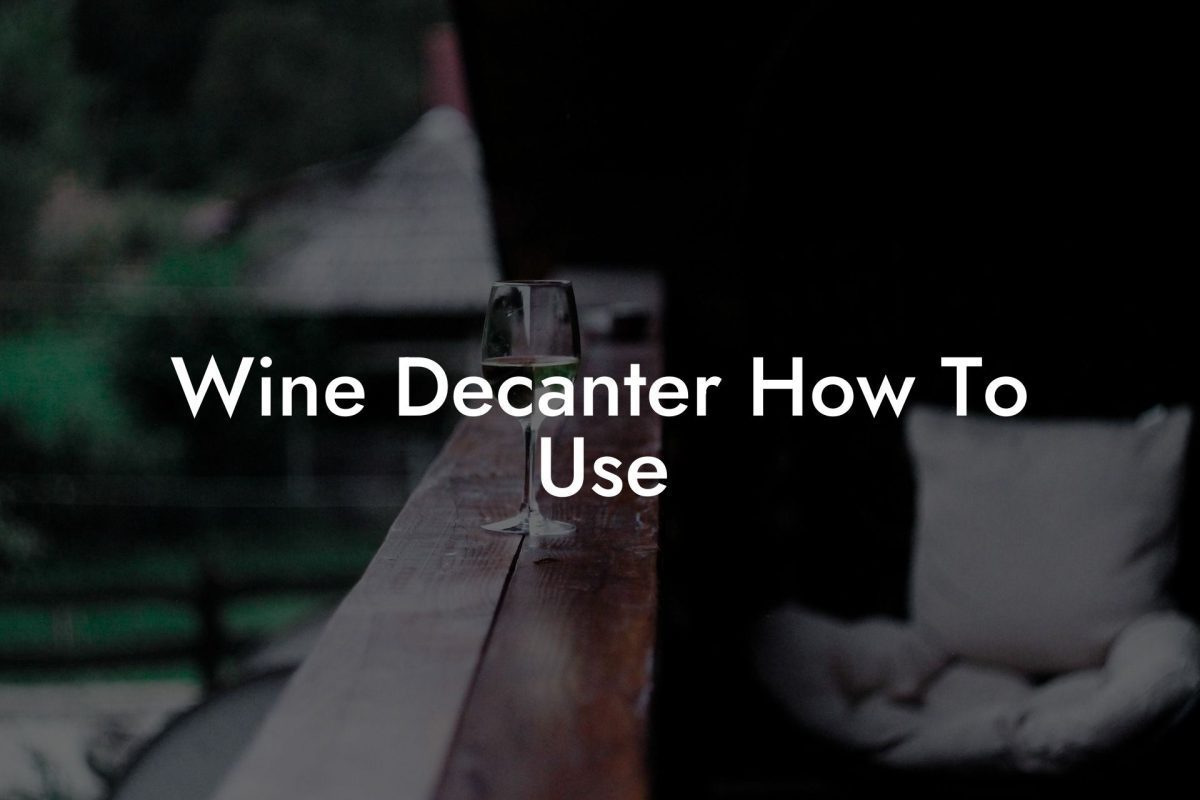Are you a self-proclaimed vino enthusiast? Have you tried deftly crafting your very own homemade wine? If so, you may be wondering: how long does homemade wine last? Does it differ from commercially produced wines? Well, wine aficionados, you're in luck. Welcome to the Black Wine Club, where we don't hesitate to discuss all things wine-related - from wine production to enjoying wine events paired with electronic music. In this article, we'll dive into the lifespan of homemade wine and provide you with useful tips on storage and consumption. So, pour yourself a glass of your favorite blend, and let's explore the delectable world of homemade wines.
How Long Does Homemade Wine Last Table of Contents
Factors That Influence Homemade Wine's Lifespan
Factors That Influence Homemade Wine's Lifespan
Homemade wine’s longevity depends on several factors that contribute to its overall stability and quality. Here are a few key elements to consider:
1. Cleanliness and Sanitation
Ensuring that all equipment and bottles used in the wine-making process are clean and sanitized is critical. This will prevent the growth of bacteria and other unwanted organisms. Maintain a sanitary environment throughout the entire winemaking process to increase your wine's lifespan.
Do You Want to Win a Free Bottle of Wine?
Don't miss out on the opportunity to win a free bottle of wine every week.
Enter our weekly prize draw today!
2. Proper Storage
Storing your wine correctly is crucial in preserving its flavor and freshness. Keep your homemade wine in a cool, dark place - ideally at a temperature between 55-65°F (13-18°C). Exposure to light and temperature fluctuations can severely affect wine quality and reduce its longevity.
3. Quality Ingredients
The quality of the ingredients in your homemade wine will also impact its shelf life. Fresh and high-quality ingredients yield superior wine with a longer lifespan. Invest in good fruits, yeasts, and additives for the best results.
4. Sulfites and Preservatives
Sulfites play a crucial role in preserving wine by preventing oxidation and bacterial growth. The addition of sulfites in your homemade wine can enhance its shelf life; however, also be mindful of the fact that excessive use can alter the taste of your wine.
So, How Long Does Homemade Wine Last?
The lifespan of homemade wine varies based on the factors mentioned above; however, we can provide a general guideline. On average, homemade reds and whites should be consumed within one to two years of bottling. In contrast, homemade fruit wines may last anywhere between six months to two years, depending on the fruit used and sugar content.
How to Increase the Lifespan of Your Homemade Wine
Follow these practical tips to extend the longevity of your wine and ensure it remains at its best:
- Always prioritize cleanliness and sanitation in your wine-making process.
- Store your wine bottles horizontally, allowing the wine to maintain contact with the cork, which helps prevent oxidation.
- Be mindful of the amount of sulfite you add. Overuse can lead to unfavorable flavors.
- If you plan to age your wine, select ingredients that are known to age well, such as high-quality grapes and flavorful fruit varieties.
How Long Does Homemade Wine Last Example:
Imagine you're attending a wine tasting at the Black Wine Club. You're trying your third glass of wine made by a fellow member. It's crisp, with a fruity sweetness and balanced acidity. The member mentions it's a homemade wine, crafted with fresh organic grapes and well-maintained equipment. They've stored the wine in a temperature-controlled cellar until they decided to bring it to the event. This delicious and well-made homemade wine may last anywhere from one to two years - giving you ample time to savor and share it with friends and fellow wine lovers.
Now that you've explored the fascinating world of homemade wines, we hope you are equipped with the knowledge needed to enjoy your creation at its best. Never underestimate the value of proper storage, quality ingredients, and sanitary winemaking conditions, as these factors directly influence your wine's lifespan. We encourage you to share this article with your fellow wine enthusiasts and invite them to join our Black Wine Club community - where members can discuss their favorite wines and take part in exclusive events and tastings. Cheers to your homemade wine journey and happy sipping!
Do You Want to Win a Free Bottle of Wine?
Don't miss out on the opportunity to win a free bottle of wine every week.
Enter our weekly prize draw today!

